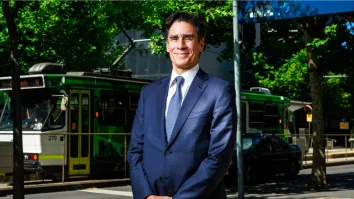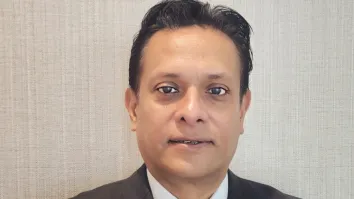
Young Malaysians, big money mistakes: What’s going wrong with Islamic financial behaviour?
By Dr. Mohd Faizuddin Muhammad Zuki, Muhammad Arif Fadilah Ishak, and Muhammad Hafiz HassanMalaysia has come a long way in promoting financial inclusion. With more than 96% of adults now having access to formal financial services, up from just 46% in 2011, the country is often praised as a model in Southeast Asia.
But here’s the twist: despite this impressive progress, many Malaysians, especially the younger generation, still struggle when it comes to managing their money wisely and in line with Islamic principles.
Recent reports highlight the nation’s inadequate retirement savings, with nearly half of Employees Provident Fund members under 55 holding less than RM10,000 ($2,310) in their accounts. Rising living costs, slow wage growth, and limited financial literacy worsen the problem, leaving many individuals financially vulnerable despite broad financial inclusion.
Moreover, whilst insurance penetration in Malaysia has reached 40%, family takaful participation lags at only 20%, raising questions about why many Muslims hesitate to adopt Shariah-compliant financial products. These gaps point to a deeper need to understand and improve Islamic financial behaviour amongst Malaysia’s young adults.
A recent study has peeled back the layers of this issue, focusing on university students in Malaysia, and uncovered some surprising truths about what really drives Islamic financial behaviour. It turns out that it’s not just about knowing the rules of Islamic finance; confidence and family influence play a much bigger role than many of us might expect.
Why financial literacy alone isn’t enough
Conventional wisdom tells us that the more you know, the better you do. But this new research challenges that idea, at least when it comes to money. The study, which surveyed university students across different higher learning institutions, looked at how factors like Islamic financial literacy, parental financial socialisation, financial risk attitude, and financial self-efficacy shape financial habits.
Surprisingly, Islamic financial literacy, the understanding of key Islamic finance concepts such as riba (interest), halal investments, and Shariah-compliant banking, wasn’t the strongest predictor of good financial behaviour. “This finding really caught us off guard,” said one of the researchers. “We’ve always assumed that knowledge is power, but in this case, knowledge alone wasn’t translating into action.”
So, if simply knowing the dos and don’ts of Islamic finance isn’t enough, what makes the real difference?
The big impact of parental influence
One of the standout findings was the power of parental financial socialisation, in simpler terms, how parents teach and model financial behaviour for their children. Students who reported that their parents regularly talked about money, showed them how to save, and demonstrated ethical financial habits were much more likely to manage their finances in ways that align with Islamic principles.
“This really reinforces the idea that financial habits are shaped at home,” the study noted. “When parents openly discuss budgeting, saving, and responsible spending, they’re not just passing on knowledge, they’re instilling values and habits that stick.”
Indeed, one student shared, “My parents always taught me to avoid debt and to save for big purchases. I’ve carried those lessons with me, and they guide how I manage my money now.”
The takeaway here is clear: if we want to raise a generation of financially responsible adults, it’s crucial to start young, and that starts at home.
Confidence is key
Another major finding of the study was the role of financial self-efficacy, that is, a person’s belief in their ability to manage their own finances effectively. Students who felt confident about budgeting, saving, and making smart financial decisions were far more likely to actually do those things.
This echoes what many financial planners have observed: confidence breeds action. “When people believe they can handle their finances, they’re more likely to take proactive steps, whether it’s starting a savings plan or investing in halal financial products,” said one financial advisor familiar with the study’s findings.
Interestingly, this sense of self-efficacy appeared to have a stronger impact than even financial knowledge. “It’s not just what you know; it’s whether you believe you can put that knowledge into practice,” the researchers explained.
Risk attitude: less important than expected
The study also looked at financial risk attitude, which measures how willing someone is to take risks with their money. In the world of conventional finance, risk tolerance is often seen as a key driver of investment and spending behaviour. But in the Islamic finance context, where ethics, compliance, and risk-sharing are emphasised over speculative risk-taking, risk attitude played a much smaller role than expected.
This makes sense when you consider that Islamic finance principles discourage high-risk speculation (gharar) and prohibit interest-based transactions (riba). As a result, ethical and religious considerations may outweigh personal risk preferences when it comes to making financial decisions.
What does this mean for Malaysia’s financial future?
So, what can we learn from all of this? For one, financial education campaigns need to go beyond simply teaching the rules of Islamic finance. “We have to focus on building students’ confidence and involving their families in the process,” one of the researchers suggested. “It’s about creating a culture of good financial habits, not just delivering information.”
There’s also a role for universities and financial institutions. Offering workshops that involve both students and their parents could help reinforce positive financial behaviours. Likewise, programmes that focus on practical, hands-on financial skills, like how to set a budget or choose a Shariah-compliant investment, could help build that all-important financial self-efficacy.
For policymakers, these findings offer a roadmap for improving financial inclusion in a way that’s meaningful and sustainable. It’s not enough to get people through the door of a bank or a takaful office; the goal should be to empower them with the skills and confidence they need to make sound financial decisions for life.
The bigger picture
At a time when many Malaysians are worried about their financial security, whether it’s a lack of retirement savings or rising living costs, these insights couldn’t come at a better moment. The study’s findings highlight that whilst knowledge is essential, it is confidence and early family influence that often set the course for a lifetime of financial well-being.
In the words of one student participant: “I’ve attended financial literacy talks before, but what really helps is seeing my parents budget every month and learning to do it myself. That’s what makes it real.”
Ultimately, the message is clear: to foster better Islamic financial behaviour amongst young Malaysians, we need a combined effort, one that involves families, builds confidence, and offers not just knowledge, but the tools and mindset to act on it.




















 Advertise
Advertise











